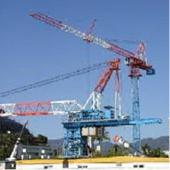
| Course Aims: | The NPORS N405 course aims to provide the candidate with a thorough practical and theory training in Supervising Lifting Operations in order to to enable the candidate to pass the NPORS Theory and Practical Tests. |
| Course Content | Through a combination of targeted training and experience, an appointed person will be able to:
|
| Course Requirement | All visitors must report to reception on arrival and follow site safety rules at all times.
There are no catering facilities on site, so delegates need to provide their own lunch. There are tea and coffee facilities available. Candidates must bring and wear their PPE on site for plant testing. They must also bring signature and photographic identification as required for all testing. |
| Examination Board | Established in 1992, the National Plant Operators Registration Scheme is now one of the UK’s leading Accreditation and Registration Bodies, working across the Construction, Industrial, Utilities, Warehousing and Distribution, Agricultural, Ports and Marine sectors.
NPORS offers flexibility, whilst maintaining standards, both nationally and internationally by working with industry and Accredited Training Providers. |
| Assessment | To achieve the NPORS Operators Card candidates must pass both the NPORS Theory and Practical Test. |
| Refresher / Re-qualification Information | Once you have achieved your NPORS Operator Card it lasts for 3 years. |
